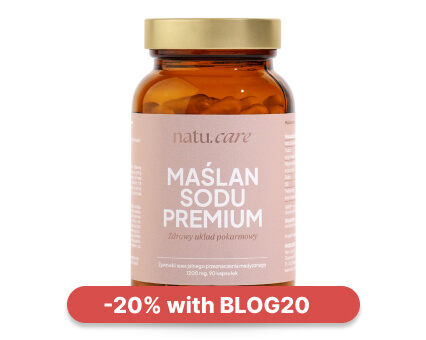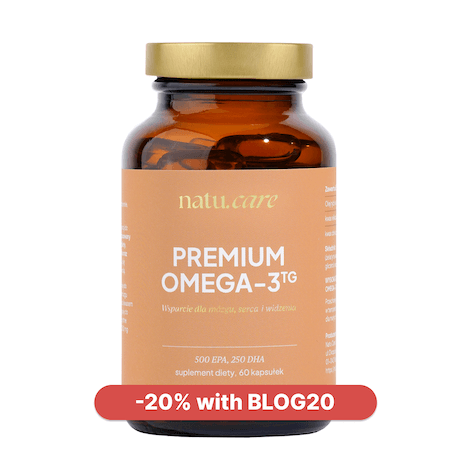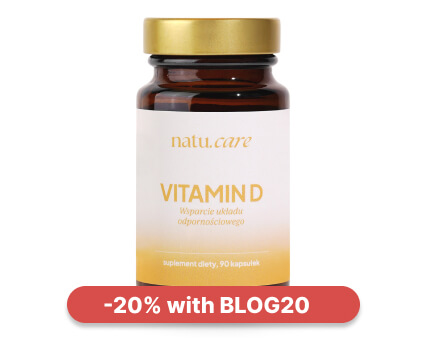Alpha-lipoic acid (ALA), or nerve regeneration [action, properties, dosage].
The antioxidant of antioxidants, or alpha-lipoic acid in a pill (capsule?).


Learn more about our editorial process
.

Learn more about our editorial process
.

Learn more about our editorial process
.

Learn more about our editorial process
.![Alpha-lipoic acid (ALA), or nerve regeneration [action, properties, dosage].](https://cdn-resources.natu.care/uploads/1/kolagen_z_kwasem_hialuronowym_hero_112db83afb.jpg)
Why you can trust us
Articles on Natu.Care are written based on scientific research, data from government websites and other reliable sources. The texts are written in cooperation with doctors, nutritionists and other health and beauty experts. Articles are reviewed before publication and during significant updates.
.Learn more about our editorial process
.Information about advertisements
Content on Natu.Care may contain links to products from the sale of which we may receive a commission. When creating content, we adhere to high editorial standards and take care to be objective about the products discussed. The presence of affiliate links is not dictated by our partners, and we select the products we review ourselves completely independently.
.Learn more about our terms and Conditions
.This ALA does not have a cat. Instead, it holds the title of 'king of antioxidants'. Meet afla-lipoic acid - a drug used in the treatment of diabetic neuropathy. It is suspected of having weight-loss-enhancing and age-stopping properties.
Alpha-lipoic acid may also help with ailments such as insulin resistance, diabetes and liver disorders. It may also have a protective effect on the nervous system and may even contribute to the elimination of cancer cells. Well, exactly - may. Because research into the effectiveness of alpha-lipoic acid on such ailments is still scarce...
From this article you will learn:
- What is alpha-lipoic acid and R alpha-lipoic acid.
- What is alpha-lipoic acid?
- What properties ALA has.
- .
- What research says about the effects of ALA.
- .
- Is it possible to be deficient in alpha-lipoic acid and what are its sources in the diet.
- .
- What daily dose of ALA acid is safe and whether it has side effects.
- .
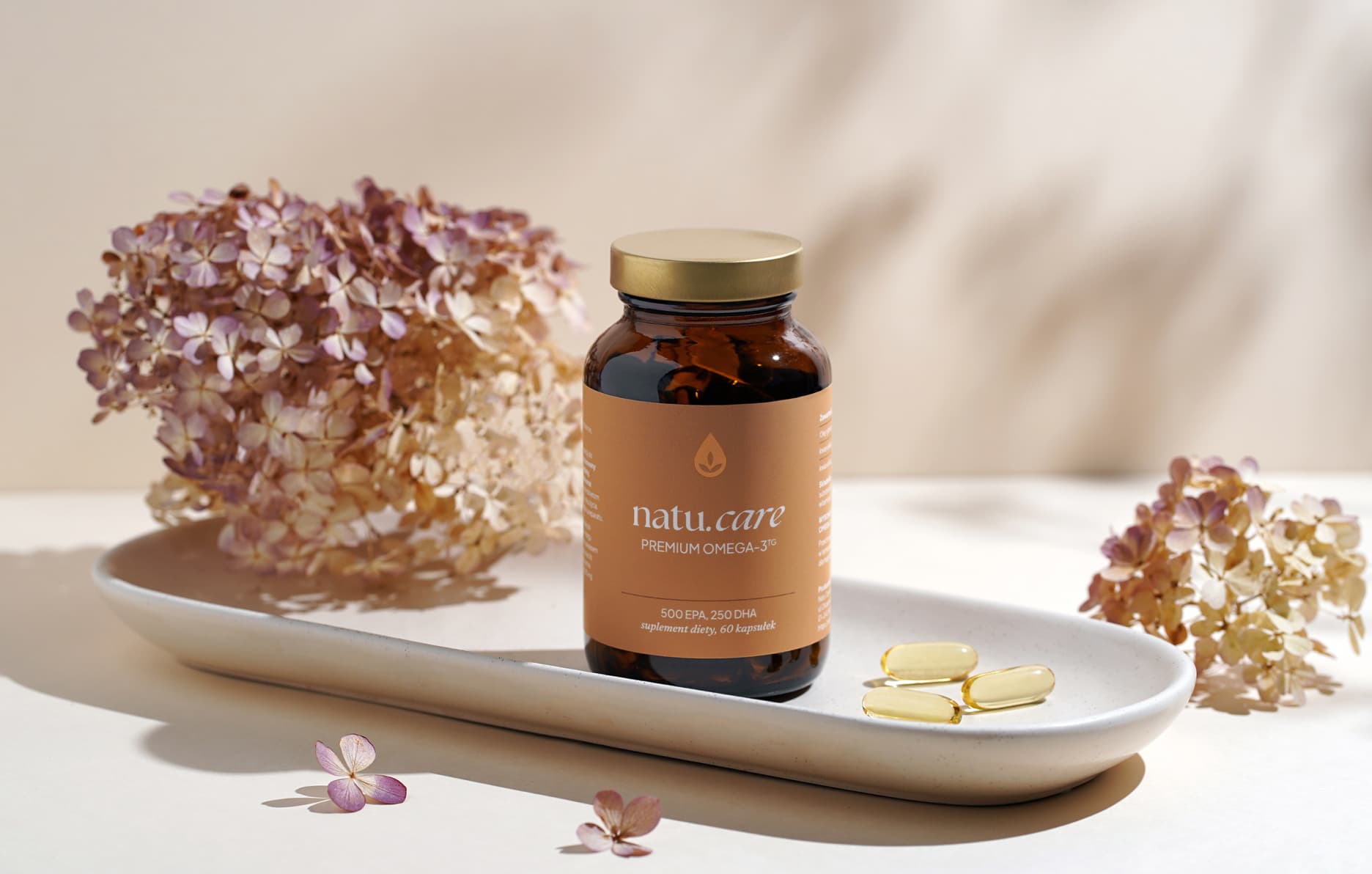
Sprawdź, za co pokochały go tysiące klientek Natu.Care Premium Omega-3ᵀᴳ -15% z kodem BLOG15
Natu.Care Omega-3ᵀᴳ Premium
Natu.Care Omega-3ᵀᴳ Premium dla zdrowia serca, mózgu i odporności. Najlepsza przyswajalność. Optymalna dawka 750 mg. Przebadana przez niezależne laboratorium.
Zobacz więcej
Produkt ma super skład, transparentną etykietę i co dla mnie jest ważne – małe kapsułki do połknięcia. Nie ma też nieprzyjemnego efektu odbijania rybą, który miałam spożywając inne produkty. Widzę znaczną poprawę odporności. Polecam!@Kasia P.
See also:
.
What is alpha-lipoic acid?
.
ALA, ALA acid, lipoic acid or thioctic acid - they call it variously. But in fact, it's all about alpha-lipoic acid all the time, which is an organic compound made up of sulphatesand.
Alpha-lipoic acid is naturally produced in your body. However, this doesn't mean you don't need to take it along with diet. According to research, around 60% of ALA acid in the body comes specifically from foodand.
Alpha-lipoic acid
.
R alpha-lipoic acid consists of s-lipoic acid and r-lipoic acid. R-lipoic acid (R-ALA) is the natural form of alpha-lipoic acid. It is also the closest to the one produced by the body, which is why it is believed to show better bioavailability (i.e. it is better absorbed).
R-ALA acid also shows more health-promoting properties and is much more beneficial to the body than its mateand.
.
Alpha-lipoic acid: properties
.
The properties of afla-lipoic acid are primarily to combat free radicals. As a powerful antioxidant ALA contributes to the prevention of antioxidant stress and delays cell degradation processes. At the mitochondrial level, it is also involved in bioenergetic reactionsand.
ALA acid can regenerate other antioxidants such as vitamin E, vitamin C, coenzyme Q10 and glutathione and is often referred to as a universal antioxidant..
 .
.
Ilona Krzak Master of Pharmacy
.
ALA acid is one of the essential components for energy production in the body's cells. Among other things, this means that it is involved in glucose and lipid metabolism. It is also responsible for gene transcription, i.e. transcribing the information contained in your DNA so that it can be copied and used to produce, for example, proteins and enzymesand.
ALA is stored mainly in the heart, kidneys and liver..
 .
.
Ilona Krzak Master of Pharmacy
Did you know that...
.Alpha-lipoic acid is soluble in both water and fatand.
Natu.Care Collagen Premium 5000 mg, mango & passion fruit

- Collagen content: 5000 mg marine collagen hydrolysate
- Additional active ingredients: vitamin C, low molecular weight hyaluronic acid (and L-theanine and coenzyme Q10 in cocoa flavoured collagen or vitamin A and vitamin E in mango–passion fruit flavoured collagen)
- Form: powder sachets
- Dose: 1 sachet per day
- Sufficient for: 30 days
Product description
Fish collagen from the Natu.Care brand in a dose of 5000 mg, based on certified ingredients of the best quality. Regular supplementation will positively influence the appearance of the skinóry, hairów and nails – they will be rebuilt and strengthened from the inside.
In addition to collagen, which is valuable for health and beauty, it also offers other active ingredients that help to maintain a youthful complexion, shiny hair and strong nails.
The formula contains a sufficient portion of the active ingredient to positively affect joints, the musculoskeletal system and immunity.
Natu.Care Premium Collagen is available in two flavours – Cacao Bloom and Rise&Shine. Both formulas are based on the following active ingredients: marine collagen hydrolysate, wild roseóbud extract and hyaluronic acid.
Additionally, Cacao Bloom contains natural L-theanine, coenzyme Q10 and defatted Dutch cacao. Rise&Shine instead contains vitamin E and vitamin A.
These are the best collagens in the world.
These best fish collagens on the market also rós taste – Cacao Bloom is a treat for chocolate lovers. Rise&Shine will appeal to those whoólike the refreshing taste of mangoófruit and passion fruit.
Pros and cons
Pros:
- Vitamin C supports the body's collagen production, enhancing its effectiveness.
- An effective dose of hyaluronic acid, which additionally supports skin hydration and joint health.
- Fish collagen absorbs 50% better. Additionally, the manufacturer specifies the fish species it is sourced from (Atlantic cod).
- The composition has been tested by the independent and accredited J.S. Hamilton laboratory.
- MSC (Marine Stewardship Council) quality certification, which confirms that the collagen source supports sustainable fishing practices.
Cons:
- None.
Additional information
Natu.Care's fish collagen receives praise for its delicious taste. You won't find the fishy aftertaste that often comes through in other collagens. Plus, you have two tasty flavors to choose from: cocoa and mango-passionfruit.
Active ingredients like coenzyme Q10, hyaluronic acid, and natural L-theanine provide anti-inflammatory and antioxidant benefits while slowing down aging processes.
User review
Super, after about 6 weeks of use, the skin on my face became noticeably firmer. Wonderful taste.
Ania ZalewskaNatu.Care customer
Natu.Care Premium collagen 10 000 mg, mango-maracuja
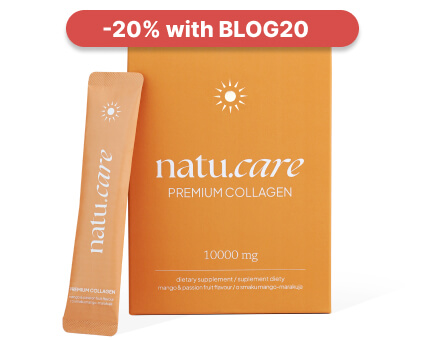
- Collagen content: 10,000 mg marine collagen hydrolysate
- Additional active ingredients: vitamin C, low molecular weight hyaluronic acid (and L-theanine and coenzyme Q10 in cocoa flavoured collagen or vitamin A and vitamin E in mango–passion fruit flavoured collagen)
- Form: powder sachets
- Dose: 1 sachet per day
- Sufficient for: 30 days
Product description
One of the strongest collagens on the market, whichós provides as much as 10,000 mg in a daily serving. This allows the formula to effectively support the condition of the skin, hair and nails.
With this supplement, you will support your beauty, which will allow you to visually stop the ageing process and feel a second youth!
Natu.Care Collagen Premium 10 000 mg comes in two flavours – cherry and mango-maracuja. Both formulas have the same product backbone – collagen, hyaluronic acid and vitamin C.
In the cherry version you additionally find glucosamine, chondroitin and Indian frankincense resin extract. Mango-maracuja, on the other hand, contains vitamin E and vitamin A.
Pros and cons
Pros:
- Tested collagen formula – SeaGarden, whose effects have been confirmed in clinical studies.
- Effective dose of hyaluronic acid, additionally moisturizing the skin and positively impacting joint health.
- Vitamin C supports the body’s natural collagen production.
- The composition has been tested by the independent and accredited J.S. Hamilton laboratory.
- The product has an MSC (Marine Stewardship Council) quality certification – the collagen source supports sustainable fishing practices.
Cons:
- None.
Additional information
Users praise Natu.Care Collagen Premium for the easy dissolvability of the powder.
User review
I noticed a significant improvement in my skin texture after a few weeks of taking collagen regularly. My complexion is now as soft as velvet!
Natu.Care Collagen Premium 10000 mg, cherry

- Collagen content: 10,000 mg of hydrolyzed bovine collagen
- Additional active ingredients: vitamin C, low molecular weight hyaluronic acid, glucosamine, chondroitin, extract of Indian frankincense resin (boswellia serrata)
- Form: powder sachets for drinking
- Serving: 1 sachet per day
- Lasts for: 30 days
Product description
One of the strongest collagens on the market, providing as much as 10,000 mg per daily serving. This product can effectively support the condition of joints, skin, hair, and nails.
With this supplement, you will support your skeletal and joint system as well as your beauty, helping you visually halt the aging process and feel rejuvenated!
Pros and cons
Pros:
- The daily portion of collagen is very large – as much as 10,000 mg.
- Proven collagen formula – COLLinstant, whose effectiveness has been confirmed in clinical studies.
- Effective dose of hyaluronic acid, which additionally moisturizes the skin and positively affects joint health.
- Vitamin C supports the body's natural collagen production.
- Glucosamine is a fundamental building block of compounds found in joint cartilage and a component of collagen that gives elasticity to connective tissue in tendons.
- Chondroitin is a natural component found in the human body, mainly in cartilage. This large molecule (mucopolysaccharide) has the ability to absorb water, which helps maintain the elasticity and resilience of cartilage.
- Frankincense resin extract supports blood circulation and joint mobility and reduces their stiffness. It may help alleviate inflammatory conditions.
- The composition has been tested by the independent and accredited J.S. Hamilton laboratory.
Cons:
- None.
Additional information
Users praise Natu.Care Collagen Premium for the easy dissolving of the powder.
Premium Sodium Butyrate
Product description
Premium Sodium Butyrate is a natural support for your digestive system. With a high dose of butyric acid (940 mg), it supports the regeneration of the intestinal mucosa, improving gut health and function, and aids in the absorption of nutrients. By taking care of your intestines, you're taking care of the health of your entire body.
Studies involving people suffering from irritable bowel syndrome confirm that sodium butyrate is ideal for supporting issues related to bacterial flora imbalances (for example, after antibiotic therapy), constipation and diarrhea, inflammation of the intestinal mucosa, or a diet low in fiber.
Premium Sodium Butyrate capsules are made using the innovative DRcaps® technology. This guarantees that the active ingredients in the product are protected from the destructive effects of stomach acids and digestive enzymes. As a result, we can be sure that the beneficial ingredients are released in the small intestine and are fully absorbed by our body.
Premium Sodium Butyrate from Natu Care is 100% tested, and its composition contains only the highest quality raw materials.
Pros and cons
Pros:
- Supports digestive system function
- Helpful for various gastrointestinal conditions, including IBS
- High dose of butyric acid in each capsule
- Eco-friendly, clean, and tested composition
- Free from added sugar, gluten, GMOs, and lactose
- Innovative capsule technology - DRcaps
Cons:
- None
Additional Information
Take 3 capsules daily at any time of the day, preferably with a meal. Swallow the capsules whole with water.
Premium Sodium Butyrate is intended for adults.
The product should be used under medical supervision.
User review
I've been using the product for 2 weeks. My stomach feels lighter, and my digestion has improved. I recommend it.
Natu.Care Premium Magnesium + Vitamin B6
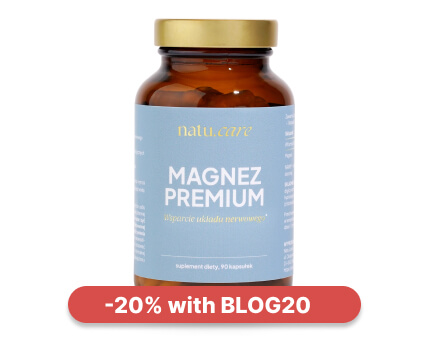
- Magnesium content per day: 305 mg
- Additional active ingredients: Vitamin B6 (2.1 mg)
- Form: capsules
- Serving size: 3 capsules per day
- Sufficient for: 30 days
Product description
The Premium Magnesium + Vitamin B6 dietary supplement is a comprehensive product that combines three organic forms of magnesium (citrate, malate, and diglycinate) and vitamin B6 in highly absorbable forms.
Magnesium is an essential mineral without which our bodies cannot function properly. It supports the immune, nervous, and muscular systems, maintains electrolyte balance, and is involved in cell division and the regulation of mental functions.
Research shows that magnesium supplementation is even more effective when accompanied by vitamin B6, which is included in our product. Vitamin B6 is responsible for the proper functioning of the nervous and immune systems, as well as the proper functioning of the heart.
If you want to safely get rid of feelings of fatigue, concentration problems, hair loss, muscle cramps, trembling, or irritability, reach for Premium Magnesium from Natu.Care, tested by the independent, certified laboratory J.S. Hamilton Poland.
Pros and cons
Pros
- Supports the proper functioning of the nervous and immune systems.
- Reduces feelings of fatigue and tiredness.
- Maintains proper psychological functions.
- The purity of the ingredients (free from anti-caking agents, artificial fillers, and additives such as titanium dioxide, microcrystalline cellulose, talc, magnesium stearate, and silicon dioxide) has been confirmed by laboratory tests.
- High absorption of ingredients.
- Soft capsules that are easy to swallow.
- Suitable for vegetarians and vegans.
Cons
- None.
Additional information
Take with a meal, 3 capsules per day.
The capsules should be taken with at least 250 ml of water.
If you have trouble sleeping, it is advisable to take 1 capsule in the morning and 2 capsules in the evening, no later than 4 hours before bedtime.
Avoid combining with products high in calcium (milk, yogurt, cheese), as this may negatively affect magnesium absorption.
Pregnant and breastfeeding women should consult a doctor before starting supplementation.
User review
I’m very impressed with the speed of delivery. The product itself is of high quality and absorbs well. After two weeks of supplementation, I’ve noticed a significant improvement in muscle recovery, especially during periods of intense training. I highly recommend it!
Product description
The dietary supplement contains omega-3ᵀᴳ, or omega-3 acids in the form of trójglyceridesów. Scientific studies suggest that this form of fatty acidsós up to 2 times better absorbed than the estersós present in many dietary supplements on the market. This means that you are assured of their effectiveness and of supplying yourself with valuable omega acids.
Fatty acids omega-3 are derived from wild anchovy oil. It is a rich source of healthy fats that are essential for the health of the cardiovascular, immune and nervous systems, as well as the proper function of vision, joints muscles.
Scientific research suggests that wild anchovies are a good source of healthy fats.
Scientific research also suggests that an adequate intake of omega-3 fatty acidsós protects against and supports the treatment of depression and anxiety disorders. In addition, omega-3s influence the hydration and appearance of the skinóry and support healthy sleep.
.
The formula contains a total of 750 mg of EPA+DHA acidsós, which is three times higher than the recommended minimum of 250 mg for the Polish population. Omega-3 TG Premium has studies indicating that its TOTOX is 9, which is a very good result.
Supplementation of omega-3 fatty acidsóis recommended for anyone who does not eat 1–2 portions (approximately 300 g) of oily fish per week. Children during growth, seniors, physically active people, vegans and vegetarians, as well as patients undergoing cardiovascular treatment and prevention of heart disease also have an increased need.
Pros and cons
The dietary supplement contains omega-3ᵀᴳ, or omega-3 acids in the form of trójglyceridesów. Scientific studies suggest that this form of fatty acidsós up to 2 times better absorbed than the estersós present in many dietary supplements on the market. This means that you are assured of their effectiveness and of supplying yourself with valuable omega acids.
Fatty acids omega-3 are derived from wild anchovy oil. It is a rich source of healthy fats that are essential for the health of the cardiovascular, immune and nervous systems, as well as the proper function of vision, joints muscles.
Scientific research suggests that wild anchovies are a good source of healthy fats.
Scientific research also suggests that an adequate intake of omega-3 fatty acidsós protects against and supports the treatment of depression and anxiety disorders. In addition, omega-3s influence the hydration and appearance of the skinóry and support healthy sleep.
.
The formula contains a total of 750 mg of EPA+DHA acidsós, which is three times higher than the recommended minimum of 250 mg for the Polish population. Omega-3 TG Premium has studies indicating that its TOTOX is 9, which is a very good result.
Supplementation of omega-3 fatty acidsóis recommended for anyone who does not eat 1–2 portions (approximately 300 g) of oily fish per week. Children during growth, seniors, physically active people, vegans and vegetarians, as well as patients undergoing cardiovascular treatment and prevention of heart disease also have an increased need.
Additional information
The dietary supplement contains omega-3ᵀᴳ, or omega-3 acids in the form of trójglyceridesów. Scientific studies suggest that this form of fatty acidsós up to 2 times better absorbed than the estersós present in many dietary supplements on the market. This means that you are assured of their effectiveness and of supplying yourself with valuable omega acids.
Fatty acids omega-3 are derived from wild anchovy oil. It is a rich source of healthy fats that are essential for the health of the cardiovascular, immune and nervous systems, as well as the proper function of vision, joints muscles.
Scientific research suggests that wild anchovies are a good source of healthy fats.
Scientific research also suggests that an adequate intake of omega-3 fatty acidsós protects against and supports the treatment of depression and anxiety disorders. In addition, omega-3s influence the hydration and appearance of the skinóry and support healthy sleep.
.
The formula contains a total of 750 mg of EPA+DHA acidsós, which is three times higher than the recommended minimum of 250 mg for the Polish population. Omega-3 TG Premium has studies indicating that its TOTOX is 9, which is a very good result.
Supplementation of omega-3 fatty acidsóis recommended for anyone who does not eat 1–2 portions (approximately 300 g) of oily fish per week. Children during growth, seniors, physically active people, vegans and vegetarians, as well as patients undergoing cardiovascular treatment and prevention of heart disease also have an increased need.
Expert opinion
The dietary supplement contains omega-3ᵀᴳ, or omega-3 acids in the form of trójglyceridesów. Scientific studies suggest that this form of fatty acidsós up to 2 times better absorbed than the estersós present in many dietary supplements on the market. This means that you are assured of their effectiveness and of supplying yourself with valuable omega acids.
Fatty acids omega-3 are derived from wild anchovy oil. It is a rich source of healthy fats that are essential for the health of the cardiovascular, immune and nervous systems, as well as the proper function of vision, joints muscles.
Scientific research suggests that wild anchovies are a good source of healthy fats.
Scientific research also suggests that an adequate intake of omega-3 fatty acidsós protects against and supports the treatment of depression and anxiety disorders. In addition, omega-3s influence the hydration and appearance of the skinóry and support healthy sleep.
.
The formula contains a total of 750 mg of EPA+DHA acidsós, which is three times higher than the recommended minimum of 250 mg for the Polish population. Omega-3 TG Premium has studies indicating that its TOTOX is 9, which is a very good result.
Supplementation of omega-3 fatty acidsóis recommended for anyone who does not eat 1–2 portions (approximately 300 g) of oily fish per week. Children during growth, seniors, physically active people, vegans and vegetarians, as well as patients undergoing cardiovascular treatment and prevention of heart disease also have an increased need.
Natu.Care Vitamin D 2000 UI
Product description
Vitamin D plays a crucial role in our health and well-being. It affects calcium and phosphate metabolism, which translates to healthy bones and teeth. It also helps regulate the immune system, and studies indicate its influence on the functioning of the nervous system.
Vitamin D, although called a “vitamin,” is actually a prohormone that our body produces on its own, primarily under the influence of sunlight. Unfortunately, our modern lifestyle contributes to deficiencies of this essential vitamin. Working in enclosed office buildings, using (necessary!) SPF creams, and covering the body with clothing all make it very difficult, if not impossible, to obtain adequate levels of vitamin D from sunlight. This is why appropriate, year-round supplementation is so crucial.
Vitamin D from Natu.Care is a well-tested vitamin D3 suspended in safflower oil, a plant known for its numerous health benefits. The convenient, easy-to-swallow capsule will make supplementation a part of your daily, healthy routine, improving your overall well-being.
Pros and cons
Pros:
- Ensures proper functioning of the immune system
- Supports the maintenance of healthy bones and teeth
- Maintains proper heart, kidney, and muscle function
- Tested by an independent, certified laboratory
- Convenient and easy-to-swallow capsule
- Clean composition - free from added sugar, gluten, GMOs, lactose, and without preservatives or colorants
Cons:
- None.
Additional Information
Pregnant women and breastfeeding mothers should consult a doctor before using the product. This dietary supplement is intended for a healthy adult population up to the age of 75.
Collagen Booster - Glow Stories
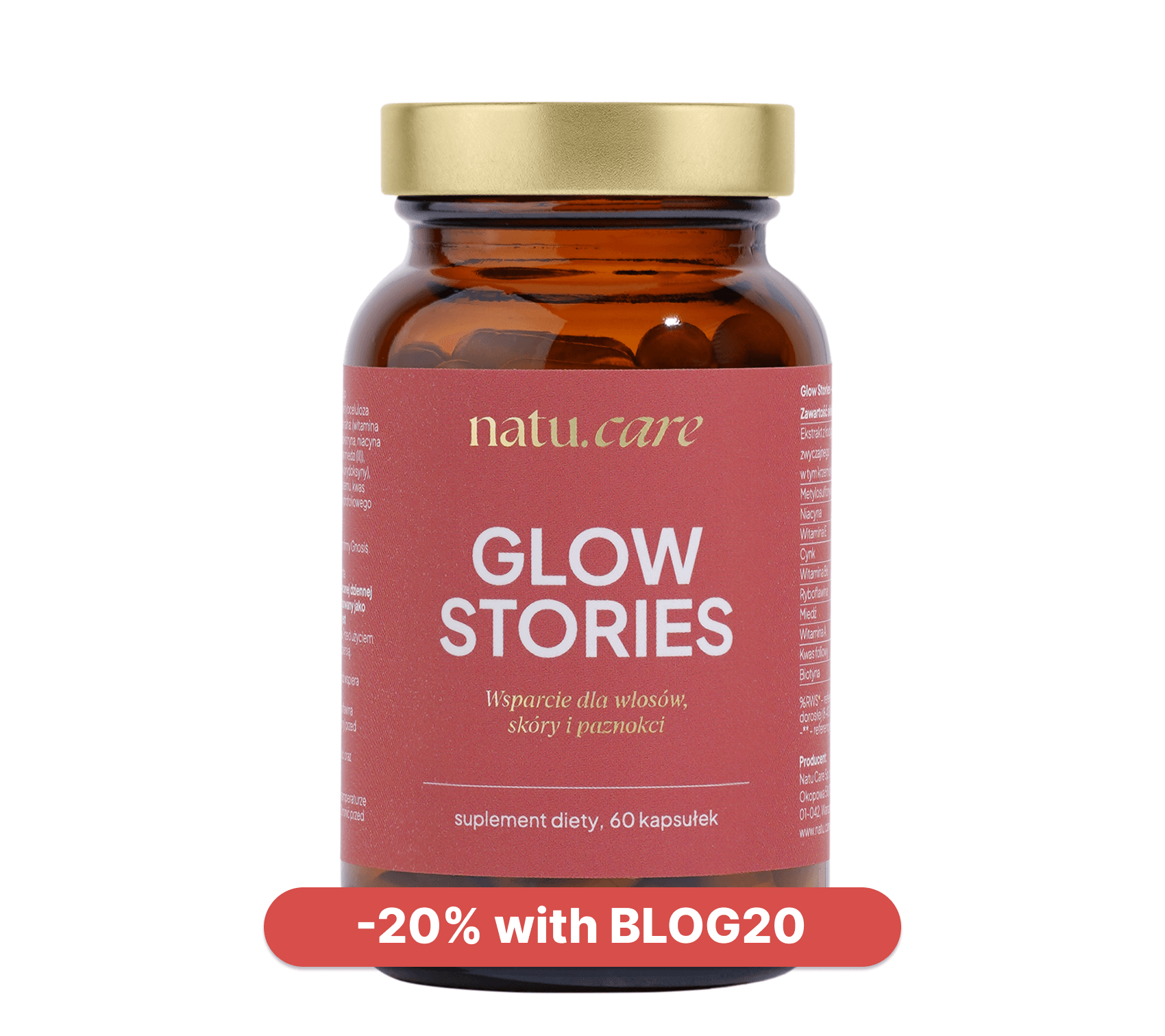
- Active ingredients: bamboo shoot extract, Quatrefolic®, L-Methionine, L-cysteine, vitamin E, vitamin A, niacin (vitamin B3), vitamin B6, vitamin B2 (riboflavin), biotin, zinc, copper
- .
- Form: capsules
- .
- Dose: 1 capsule per day
- .
- Sufficient for: 60 days
- .
Product description
A dietary supplement containing vitamins, minerals and plant extracts thatósupport the skinóhand, hair and nails. The product is especially distinguished by the form of folate – it is Quatrefolic, whichós absorbed very well and is natural.
In addition to valuable vitamins and minerals, such as vitamin A, E, B3, B2 and biotin, the formula contains bamboo shoot extract, whichóry further enhances your beauty.
Pros and cons
A dietary supplement containing vitamins, minerals and plant extracts thatósupport the skinóhand, hair and nails. The product is especially distinguished by the form of folate – it is Quatrefolic, whichós absorbed very well and is natural.
In addition to valuable vitamins and minerals, such as vitamin A, E, B3, B2 and biotin, the formula contains bamboo shoot extract, whichóry further enhances your beauty.
Additional information
A dietary supplement containing vitamins, minerals and plant extracts thatósupport the skinóhand, hair and nails. The product is especially distinguished by the form of folate – it is Quatrefolic, whichós absorbed very well and is natural.
In addition to valuable vitamins and minerals, such as vitamin A, E, B3, B2 and biotin, the formula contains bamboo shoot extract, whichóry further enhances your beauty.
Alpha-lipoic acid: what it helps with
.
Alpha-lipoic acid has anti-inflammatory and antioxidant effects. Moreover, it can also regenerate other antioxidants in the body. On top of this, it increases cellular sensitivity to insulin and aids glucose absorption.
The promising effect of ALA administration on reducing inflammatory markers such as CRP, IL-6 and TNF-α has been noted. It is noteworthy that a sustained CRP level >3.5 mg/l increases the risk of cardiovascular events.
 .
.
Ilona Krzak Master of Pharmacy
.
By regulating metabolic processes and fighting free radicals, ALA may also help treat insulin resistance, diabetes, cardiovascular disease and other ailments caused by oxidative stressand.
Significant improvements in pain have been observed following oral ALA supplementation at doses of 400 to 600 mg/day for pain in conditions such as migraine, back pain, and pain associated with carpal tunnel syndrome..
 .
.
Ilona Krzak Master of Pharmacy
.
Nerve system
.
Alpha-lipoic acid may support nerve regeneration. Studies show that intravenous administration of 600 mg, for at least three weeks, improved the flow of impulses in peripheral nerve fibres, reducing pain and numbness in patients with neuropathy. Unfortunately, this form of therapy is not reimbursed in Poland.
.
Alpha-lipoic acid may have a protective effect on brain cells. In an in vitro study conducted in 2003, ALA was shown to have a neuroprotective effectand. As a result, it may support memory, cognitive function and intellectual abilities.
Magister of Pharmacy Ilona Krzak talks about an interesting study showing the effects of ALA acid on migraine headaches:
"Ninety-two women suffering from episodic migraines participated in a randomised, double-blind, placebo-controlled parallel study. Participants were randomly assigned to a group receiving 300 mg ALA daily or placebo twice daily for 12 weeks.
The participants were randomly assigned to a group receiving 300 mg ALA daily or placebo twice daily for 12 weeks.
The migraine headache index score was significantly reduced in the intervention group compared with the control group.
AlA supplementation can be considered as a potential adjunctive therapy in migraine patients due to the improvement in mitochondrial and endothelial function and clinical symptoms."
Some studies also indicate that ALA acid may be helpful in the prevention and treatment of Alzheimer's diseaseand. Oxidative stress is considered one of the main causes of this neurodegenerative disease and can be accompanied by inflammation. Alpha-lipoic acid counteracts both.
However, there is still too little scientific evidence (especially studies with humans) to conclusively support the efficacy of ALA treatment in Alzheimer's disease.
In contrast, a 2018 study tested the effects of ALA acid on a group of 21 multiple sclerosis patients. Researchers noted improvements in motor function in those with less disabilityand.
This study, however, is only a prelude to learning more about the effectiveness of alpha-lipoic acid in supporting the treatment of multiple sclerosis.
Thyroid
.
Alpha-lipoic acid can reduce the concentration of hormones thyroid. Therefore, people suffering from disorders of this organ should consult an endocrinologist before starting ALA acid supplementsand.
Today, there is a lack of human scientific studies evaluating the effects of alpha-lipoic acid on thyroid function, although there are many indications that ALA and the thyroid are not indifferent.
A case-control analysis of hypothyroidism in 2022 rats showed an improvement in their condition after supplementation with alpha-lipoic acid or metforminand. Would these substances have had the same effect in tailless bipedal mammals? Not known.
See also:
Cancer
.
Always when I hear about miraculous discoveries and substances that 'cure' cancer, I immediately become suspicious. However, I cannot ignore reports of ALA acid's achievements in the fight against cancer. Here is what the research says:
The antioxidant properties of alpha-lipoic acid may contribute to the death of cancer cells in certain types of cancer, such as breast cancer, colorectal cancer and lung cancerand.
However, it is also a fact that ALA acid can interact with chemotherapy preparations and interfere with their effects .
.
What is the conclusion? ALA acid can be a great ally in preventing the development of cancer. However, if you are suffering from cancer and want to start taking alpha-lipoic acid - be sure to consult your oncologist. And under no circumstances treat ALA acid as the only treatment! I want this to resound: ALA acid is not a cure for cancer.
Diabetes
.
Thanks to its properties affecting cellular insulin sensitivity and glucose uptake, alpha-lipoic acid may help treat insulin resistance and diabetes.
Complementary therapies, such as antioxidant supplementation, are recommended in patients with metabolic disorders to improve their nutritional status and strengthen the immune system.
.
 .
.
Ilona Krzak Master of Pharmacy
.
.
A retrospective observational study involving 322 patients treated with different doses of ALA (i.e. 400, 600, 800 and 1,200 mg/day) concluded that chronic use (4 years) of ALA is well tolerated at all doses, with improvement in glycaemic status only at high doses in those with disglycaemia, adds pharmacist.
However, the most research has been devoted to the effect of ALA acid on patients with diabetic neuropathy, a dangerous complication accompanying an advanced form of diabetesand.
.
Diabetic neuropathy manifests as severe muscle pain and spasms, as well as muscle weakness, which can lead to mobility problems and disability. Results from numerous studies suggest that supplementation with alpha-lipoic acid reduced pain and improved overall function in patientsand.
The greatest efficacy of ALA acid in diabetic neuropathy is demonstrated by its intravenous administration - in the form of an injection. Unfortunately, this method of treatment is not reimbursed in Poland and one has to bear the full costs.
Important
AlAcid in the form of an injectable drug should always be administered by a doctor.
. .
Other
.
Alpha-lipoic acid may also be helpful in:
.
- .
- delaying the body's ageing process,
- .
- alleviating symptoms of ailments of the liver,
- .
- removal of metals from the body (including chelation of iron),
- .
- prevention of cardiovascular disease,
- .
- weight reduction,
- .
Speaking of the efficacy of ALA acid in weight loss, I must add that the conclusions of the studies are not consistent. The results show a considerable discrepancy between the weight loss effects obtained. In some studies they are clear, in others quite the oppositeand.
There is no doubt that while ALA can help in the fight against unwanted pounds, a calorie deficit (achieved through a balanced diet) and physical activity are key.
Alpha-lipoic acid: deficiency and excess
.
Alpha-lipoic acid is crucial for many processes in the body. Despite this, symptoms of its deficiency are unlikely to be observed. The exceptions are people suffering from very rare genetic disorders that interfere with the natural synthesis of ALA in the body.
Similarly, it is difficult to overdose on alpha-lipoic acid, although incidents of accidental or deliberate ingestion of huge portions of it have been reported in medicine.
Overdose has been associated with neurological symptoms, cardiac arrhythmias and metabolic acidosisand. In one case, a 14-year-old girl who took a large amount of alpha-lipoic acid in a suicide attempt developed multiple organ failure, leading to death .
Remember
Safe supplementation is sensible supplementation. Always follow the manufacturer's guidelines for daily servings of the product, unless your doctor recommends a different dosage.
When it comes to the safety of ALA, a number of clinical studies have shown that ALA is very well tolerated and no significant side effects have been observed compared to placebo..
 .
.
Ilona Krzak Master of Pharmacy
.
Alpha-lipoic acid: drug or dietary supplement
.
There are both alpha-lipoic acid preparations available on the Polish market in the form of a medicine and dietary supplement. When deciding on a particular product, it is worth bearing in mind that the marketing of a medicine (even one available over-the-counter) requires the submission of appropriate studies. This ensures that you are assured that the preparation will work and that its manufacturing process is controlled.
On the other hand, many of the top manufacturers of dietary supplements offer products with high-quality ingredients and also have tests and certifications to prove the purity and grade of the raw materials.
Each batch of a released medicine is subject to further inspection by the manufacturer and, in the event of irregularities, the medicine is withdrawn or withheld from the market. There is no such control in the case of supplements..
 .
.
Ilona Krzak Master of Pharmacy
What is certainly worth paying attention to when choosing ALA acid is its form. The best action and absorption into the body is demonstrated by R-ALA acidand.
Alpha-lipoic acid: sources in the diet
.
You don't need to take drugs or supplements at all to provide yourself with ALA acid. The following are rich in it:
- spinach,
- .
- broccoli,
- .
- tomatoes,
- .
- beef offal,
- .
- potatoes,
- .
- green peas,
- .
- rice bran,
- .
- beef,
- .
- carrots,
- .
- beet,
- .
Alpha-lipoic acid: dosage
.
Neither a daily requirement or a maximum daily dose has been specified for alpha-lipoic acid. However, it is considered safe for adults to take between 200 mg and 2,400 mg of ALA dailyand.
Pharmacokinetic studies have shown that various doses (50-600 mg) of orally administered ALA are completely absorbed within 30-60 minutes, with a plasma half-life of 30 minutes..
 .
.
Ilona Krzak Master of Pharmacy
.
Most of the studies on alpha-lipoic acid involved giving patients daily doses of approximately 600 mgand.
Note
.There are no studies examining the effects of ALA acid on children. Thus, a safe dose of this substance has not been determined, and therefore it is not recommended to be administered to anyone under the age of 18and.
Alpha-lipoic acid: contraindications
.
Alpha-lipoic acid is a safe substance; however, it may interact with some medications. Therefore, if you are taking any medication, consult your doctor before taking ALA.
Caution is advised.
Caution is also advised for those suffering from diseases in which alpha-lipoic acid aids therapy (as it may unnecessarily potentiate the effects of other drugs). Beware should also be taken by people with disorders of the liver, low levels of thyroid hormones and iron deficienciesand.
Remember
Alpha-lipoic acid interferes with the action of chemotherapy preparations. Do not take it if you are using this method of treatment.
.
Alpha-lipoic acid: side effects
.
The most common side effects of taking alpha-lipoic acid preparations are:
.
- problems with the digestive system,
- .
- skin lesions,
- .
- allergic reactions,
- .
- dizziness,
- .
Most of the above symptoms are associated with sensitisation to specific components of ingested productsand.
Alpha-lipoic acid: what not to combine with
.
The effects of alpha-lipoic acid preparations may be reduced:
.
At the same time, if you are taking any organic metals (e.g. iron), alpha-lipoic acid will neutralise their effects and accelerate their removal from the bodyand.

Sprawdź, za co pokochały go tysiące klientek Natu.Care Premium Omega-3ᵀᴳ -15% z kodem BLOG15
Natu.Care Omega-3ᵀᴳ Premium
Natu.Care Omega-3ᵀᴳ Premium dla zdrowia serca, mózgu i odporności. Najlepsza przyswajalność. Optymalna dawka 750 mg. Przebadana przez niezależne laboratorium.
Zobacz więcej
Produkt ma super skład, transparentną etykietę i co dla mnie jest ważne – małe kapsułki do połknięcia. Nie ma też nieprzyjemnego efektu odbijania rybą, który miałam spożywając inne produkty. Widzę znaczną poprawę odporności. Polecam!@Kasia P.
Summary
.
- Alpha-lipoic acid (ALA) is a compound composed of sulfates.
- The body is capable of synthesizing the following compounds.
- The body is able to synthesise ALA on its own, however, we supply most of the requirement with our diet.
- The body is able to synthesise ALA on its own, however, we supply most of the requirement with our diet.
- R-ALA acid is the best form of alpha-lipoic acid.
- .
- ALA acid is a powerful antioxidant that can regenerate other antioxidants in the body.
- .
- Alpha-lipoic acid also affects insulin metabolism and glucose metabolism.
- .
- Alpha-lipoic acid helps in the treatment of diabetic neuropathy, has a protective effect on the nervous system and slows down the degenerative processes of cells.
- The daily requirement for ALA acid nor its maximum dose has not been established.
- The following is an example.
- Both deficiency and excess of alpha-lipoic acid are very rare.
- .
- People taking medication, suffering from liver ailments and those with metal deficiencies (e.g. iron, zinc) should exercise caution when taking supplementation.
- .
FAQ
.Is alpha-lipoic acid safe?
.Yes, alpha-lipoic acid (ALA) is considered a safe substance. It occurs naturally in the human body and is also synthesised there.
Although no daily requirement for ALA acid or maximum daily dose has been determined, doses of 200 mg to 2,400 mg are assumed to have no side effects. However, like any active substance, alpha-lipoic acid can cause allergic reactions.
Does alpha-lipoic acid cleanse the body?
.Alpha-lipoic acid binds metal compounds and helps remove them from the body. It can also be used as an antidote for poisoning iron, zinc and even lead. However, for this reason, people who are deficient in iron (and other natural metals) should not supplement with ALA.
Does alpha-lipoic acid lose weight?
.Some studies suggest that alpha-lipoic acid may aid weight loss, due to its enhancement of tissue insulin sensitivity and regulation of glucose metabolism. However, ALA acid should not be considered as a weight loss agent. For weight loss, proper diet and physical activity are crucial.
When to take alpha-lipoic acid?
.The time of day you take alpha-lipoic acid does not matter. What is important, however, is that you take it on an empty stomach - at least one hour before eating. In this way, you increase its bioavailability.
How much ALA acid per day?
.The daily requirement for alpha-lipoic acid has not been determined. Based on research, 600 mg of ALA per day may be considered a therapeutic dose, but daily servings of up to 2400 mg are considered safe and have no side effects.
Is it possible to buy alpha-lipoic acid in a pharmacy?"
.Yes, you can find many preparations with ALA acid at the pharmacy. You can choose from medicines (including over-the-counter ones) and dietary supplements. You can find alpha-lipoic acid in tablet form and in intravenous injection liquids - to be administered by a doctor.
Does alpha-lipoic acid lower sugar?
.Alpha-lipoic acid may be helpful in the treatment of insulin resistance and diabetes due to its properties of increasing cellular sensitivity to insulin and regulating glucose metabolism. However, if you are diabetic, do not take ALA acid on your own - always consult your doctor before starting supplementation.
.
Sources
.See all
.Alpha Lipoic Acid-Health Encyclopedia-University of Rochester Medical Center. (n.d.). Retrieved September 28, 2023, from https://www.urmc.rochester.edu/encyclopedia/content.aspx?contenttypeid=19&contentid=AlphalipoicAcid
Alpha-lipoic acid Information | Mount Sinai-New York. (n.d.). Mount Sinai Health System. Retrieved September 28, 2023, from https://www.mountsinai.org/health-library/supplement/alpha-lipoic-acid
Emir, D. F., Ozturan, I. U., & Yilmaz, S. (2018). Alpha lipoic acid intoxicatıon: An adult. The American Journal of Emergency Medicine, 36(6), 1125.e3-1125.e5. https://doi.org/10.1016/j.ajem.2018.03.022
Gomes, M. B., & Negrato, C. A. (2014). Alpha-lipoic acid as a pleiotropic compound with potential therapeutic use in diabetes and other chronic diseases. Diabetology & Metabolic Syndrome, 6(1), 80. https://doi.org/10.1186/1758-5996-6-80
Hadzik, B., Grass, H., Mayatepek, E., Daldrup, T., & Hoehn, T. (2014). Fatal Non-accidental Alpha-lipoic Acid Intoxication in an Adolescent Girl. Klinische Pädiatrie, 226(05), 292-294. https://doi.org/10.1055/s-0034-1372622
Khoder, N. M., Sawie, H. G., Sharada, H. M., Hosny, E. N., Khadrawy, Y. A., & Abdulla, M. S. (2022). Metformin and alpha lipoic acid ameliorate hypothyroidism and its complications in adult male rats. Journal of Diabetes & Metabolic Disorders, 21(2), 1327-1337. https://doi.org/10.1007/s40200-022-01063-7
Lipoic Acid-An overview | ScienceDirect Topics. (n.d.). Retrieved September 28, 2023, from https://www.sciencedirect.com/topics/biochemistry-genetics-and-molecular-biology/lipoic-acid
Lovell, M. A., Xie, C., Xiong, S., & Markesbery, W. R. (2003). Protection against amyloid beta peptide and iron/hydrogen peroxide toxicity by alpha lipoic acid. Journal of Alzheimer's Disease, 5(3), 229-239. https://doi.org/10.3233/JAD-2003-5306
Loy, B. D., Fling, B. W., Horak, F. B., Bourdette, D. N., & Spain, R. I. (2018). Effects of lipoic acid on walking performance, gait, and balance in secondary progressive multiple sclerosis. Complementary Therapies in Medicine, 41, 169-174. https://doi.org/10.1016/j.ctim.2018.09.006
Nguyen, H., & Gupta, V. (2023). Alpha-Lipoic Acid. In StatPearls. StatPearls Publishing. http://www.ncbi.nlm.nih.gov/books/NBK564301/
.Odabasoglu, F., Halici, Z., Aygun, H., Halici, M., Atalay, F., Cakir, A., Cadirci, E., Bayir, Y., & Suleyman, H. (2011). α-Lipoic acid has anti-inflammatory and anti-oxidative properties: An experimental study in rats with carrageenan-induced acute and cotton pellet-induced chronic inflammations. British Journal of Nutrition, 105(1), 31-43. https://doi.org/10.1017/S0007114510003107
Rezaei Zonooz, S., Hasani, M., Morvaridzadeh, M., Beatriz Pizarro, A., Heydari, H., Yosaee, S., Rezamand, G., & Heshmati, J. (2021). Effect of alpha-lipoic acid on oxidative stress parameters: A systematic review and meta-analysis. Journal of Functional Foods, 87, 104774. https://doi.org/10.1016/j.jff.2021.104774
Salehi, B., Berkay Yılmaz, Y., Antika, G., Boyunegmez Tumer, T., Fawzi Mahomoodally, M., Lobine, D., Akram, M., Riaz, M., Capanoglu, E., Sharopov, F., Martins, N., Cho, W. C., & Sharifi-Rad, J. (2019). Insights on the Use of α-Lipoic Acid for Therapeutic Purposes. Biomolecules, 9(8), Article 8. https://doi.org/10.3390/biom9080356
Tripathi, A. K., Ray, A. K., Mishra, S. K., Bishen, S. M., Mishra, H., & Khurana, A. (2023). Molecular and Therapeutic Insights of Alpha-Lipoic Acid as a Potential Molecule for Disease Prevention. Revista Brasileira de Farmacognosia, 33(2), 272-287. https://doi.org/10.1007/s43450-023-00370-1
Viana, M. D. M., Lauria, P. S. S., Lima, A. A. de, Opretzka, L. C. F., Marcelino, H. R., & Villarreal, C. F. (2022). Alpha-Lipoic Acid as an Antioxidant Strategy for Managing Neuropathic Pain. Antioxidants, 11(12), Article 12. https://doi.org/10.3390/antiox11122420
Wolinsky, I., & Driskell, J. A. (2004). Nutritional Ergogenic Aids. CRC Press. https://books.google.pl/books/about/Nutritional_Ergogenic_Aids.html?id=Ix8l0yAHqvUC&redir_esc=y
.
Editorials
Meet the team

Ilona Krzak obtained her Master of Pharmacy degree from the Medical University of Wrocław. She did her internship in a hospital pharmacy and in the pharmaceutical industry. She is currently working in the profession and also runs an educational profile on Instagram: @pani_z_apteki

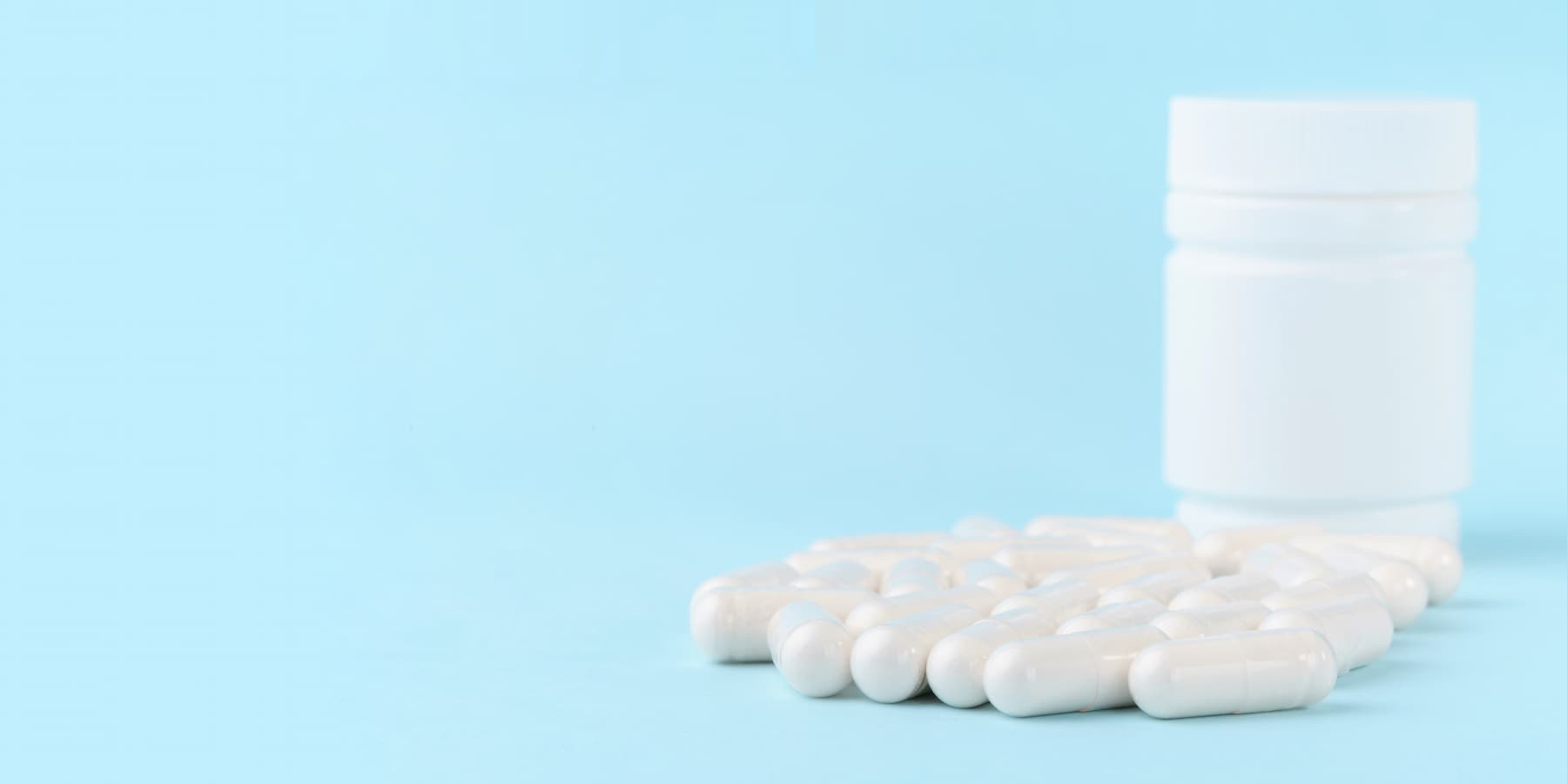
Chondroitin helps the joints and other elements of the body.

Glutathione is one of the most potent antioxidants for supporting the body's health. Find out how it works and where to get it from.

See why hip joints hurt and how to treat their ailments.
